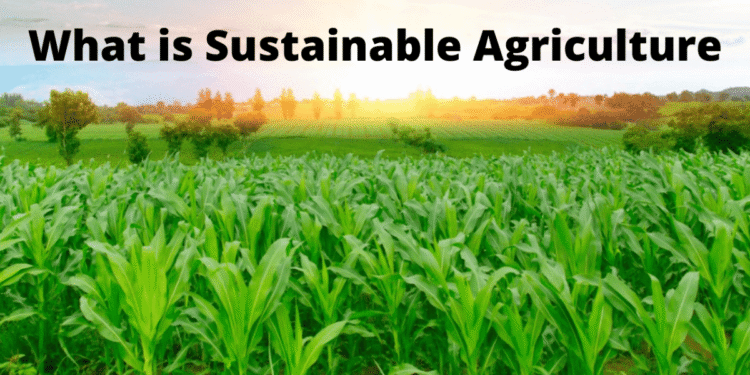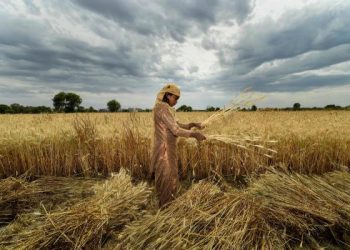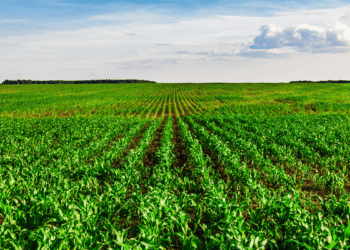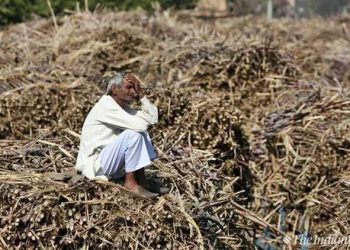Sustainable agriculture is an agricultural system that maintains soil fertility and biodiversity, reduce environmental pollution, and produces enough food for the local population. It is also an environmentally-friendly way of farming because it uses natural resources in a sustainable way.
Sustainable practices help farmers produce more with less capital and labor. They can be adopted by smaller farmers who may not have access to all the required funding or inputs, as well as young entrepreneurs without much capital.
The good news is that there are many sustainable farming techniques that can help any producer thrive economically while protecting the land and preserving its natural resources.
What is Sustainable Farming?
Sustainable agriculture is an agricultural production system that is focused on long-term, ecosystem-based growth. Sustainable farmers strive to maintain soil fertility and biodiversity, reduce pollution, and increase food production while using the resources of the farm in a way that is efficient and respectful of the environment.
Why is sustainable farming important?
The main goal of sustainable agriculture is to protect both the environment and agricultural productivity. Protecting soil quality – Sustainable farmers work to keep soil healthy because once depleted, it can’t produce crops. Sustainable agriculture seeks to build soil quality by using appropriate crop varieties, maintaining a healthy soil balance, and planting cover crops. Protecting biodiversity
Sustainable farmers also strive to keep biodiversity high by diversifying their crops so that they won’t rely too much on a single species. Diversifying also helps reduce the risk of pests and diseases developing resistance to a single treatment. Increasing food production
Sustainable farming seeks to increase production by using scientific methods to improve crop varieties, maintain soil quality, and control pests. Furthermore, sustainable farmers implement nutrient-rich crop rotation, which uses the same soil for at least five years.
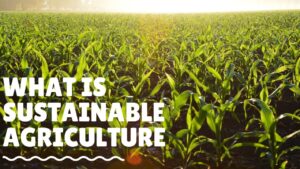
How do you achieve sustainable agriculture?
Choose crops that are renewable and self-replicating. These crops are able to grow multiple times without requiring extra inputs of water, fertilizer, or pesticides. Adapt your technology to the soil and climate of your region. This improves your chances of succeeding with sustainable farming by using local agrochemistry and appropriate technologies.
Increase farm productivity by having a diversity of crops. This decreases the risk of a single crop failing because of a lack of diversity. It also makes it more likely that if a crop does fail, there will be one or more other crops that can be harvested to replace it. Maintain high crop and livestock yields by using sound scientific methods. This helps you maximize production while keeping your farm profitable and sustainable.
Establish a long-term, profitable business model that is based on the cultivation and sale of crops. Collect data using an effective farm management system. This helps you optimize your resources and identify areas for improvement. Engage in local community development projects to improve the lives of people and increase your chances of making a long-term impact.
Pros of sustainable agriculture
- You’re Helping the Environment – Sustainable agriculture practices are designed to protect soil quality and biodiversity, while also increasing food production. This means that you’re helping to slow climate change, which is a threat to agriculture around the world.
- You’re Helping the Economy – Sustainable agriculture is an excellent way for farmers to increase their income. Many sustainable farming techniques help to boost crop yields and increase profits. Sustainable farming can also help provide jobs in rural areas, where many people have been hurt by the effects of globalization.
- You’re Building Community – Sustainable agriculture practices help to build strong local communities by engaging in community development programs, such as irrigation systems, health clinics, and educational initiatives.
Cons of sustainable agriculture
- You Have to Wait Longer for Your Crop to Start Growing – Sustainable farming techniques typically result in longer crop growing times than conventional farming methods. This could affect how you plan your production cycle, as it may take longer to reach a level of production where you can supply food locally and export.
- You Have to Use More Labor – Sustainable farming techniques typically require more manual labor than conventional farming methods. This could affect your ability to run a profitable business, depending on your level of expertise.
- You Have to Spend More Money on Buying Equipment – Sustainable farming techniques typically require more capital investment than conventional farming methods. This could affect your profitability, depending on how much you invest and the rate of return.
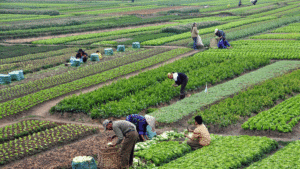
Conclusion
Sustainable farming practices are an important way for farmers to increase food production while protecting the environment. These practices can result in increased revenue and a longer lifespan for the farm, ensuring that it produces food for generations without requiring constant investment in its operation.
But sustainable farming isn’t easy. It requires a lot of patience and a long-term vision. It also requires a lot of hard work and a great deal of dedication. But if you’re willing to put in the effort, sustainable farming can be a very rewarding experience.

